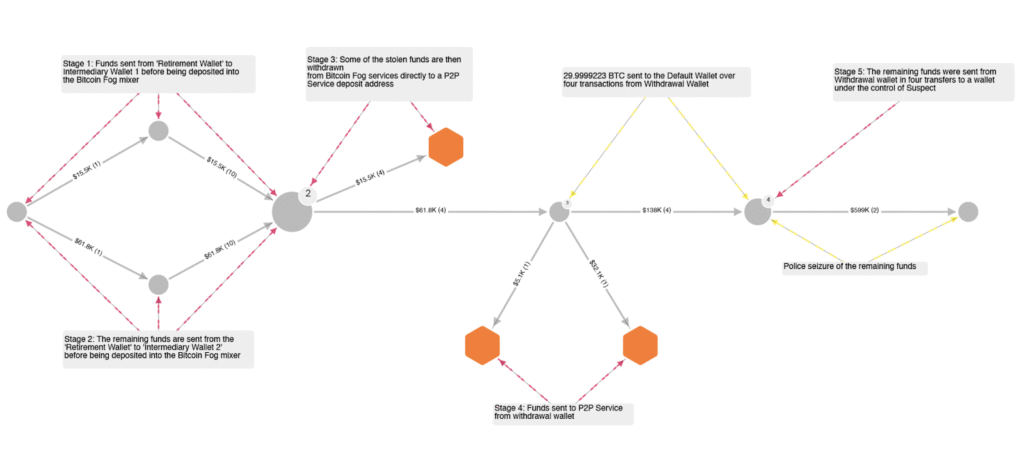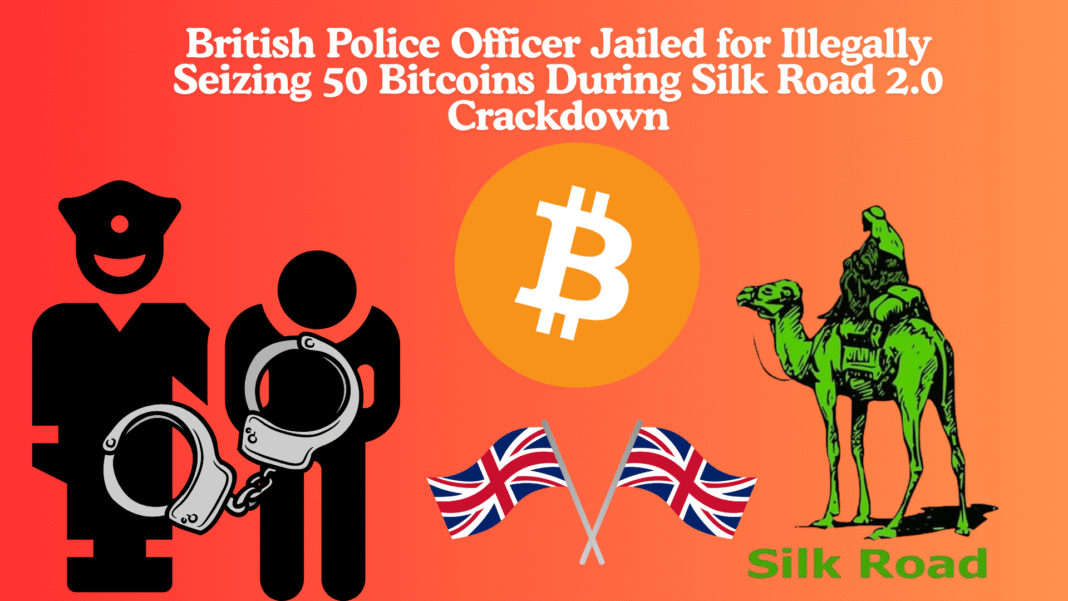Paul Chowles, a former British National Crime Agency (NCA) officer, has been sentenced to five-and-a-half years in prison for the theft of 50 Bitcoin.
The theft was confirmed in an official investigation relating to the notorious Silk Road 2.0 darknet marketplace.
Chowles stole Bitcoin while abusing his access to digital evidence in a case within a specialized task force targeting the revived Silk Road and Silk Road 2.0, according to the Crown Prosecution Service (CPS).
The Bitcoin irritated value of just over $79,000 at the time of the theft in 2017 has since accrued an astonishing value of $5.9 million plus interest.
In May, Chowles pleaded guilty to multiple charges of theft, transferring criminal property, and concealing criminal assets.
Chowles Employed Mixers and Debit Cards to Obscure the Fraudulent Activity
The CPS alleged that Chowles played a pivotal role in the analysis of digital assets seized from Silk Road 2.0 co-founder Thomas White.
In November 2014, 97 Bitcoin were seized from White’s crypto wallet, but in a peculiar act in May 2017, 50 BTC disappeared somewhere into the mist.

Chowles wanted to get the best out of Bitcoin Fog, the cryptocurrency mixing service, to launder the said funds and to give it some obliterated transaction trails.
Subsequently, investigators learned that some Bitcoin were still laundered into cash or spent through crypto-enabled debit cards through a combination of tools, placing a spotlight on Chowles’ highly sophisticated efforts to foil investigation tracks.
Prosecutors stated that Chowles was well respected within the National Crime Agency for his technical excellence in dark web and crypto investigations, and this made his betrayal particularly galling.
Also Read: US DOJ Gets Green Light To Sell $6.5B Bitcoin From Silk Road Seizure, BTC Price Dump Ahead?
Tip from Thomas White Revealed Chowles’ Wrongdoing
Initially believed to have been the one who made the Bitcoins disappear in the first place, Thomas White was implicated in the theft.
The assumption was that White may have somehow accessed his old wallet, and thus, the missing funds were relegated to the category of irretrievable.
But White denied this, saying he had no access to the wallet and rather put forth the claim that the theft must have come from within the NCA-the only organization that held the private keys for that wallet.
Intertwined on the heels of his tip between Merseyside Police and the NCA, Chowles was present. That very meeting was the turning point in the investigation.
Gradually, Chowles began coming under the watchful eyes of the law as suspicions mounted, leading to the discovery of crucial pieces of evidence figuring into the stolen money.
Also Read: Employee Jailed 78 Months For Stealing 3.2M Tether (~¥26M) From Singapore Fintech
The Crime was Confirmed Through Phone Records and Notes
The discovery of the phone was another crucial evidence as it contained records connecting Chowles to a wallet involved in the Bitcoin illicit transfers.
His browser history showed that he had visited crypto exchanges, further tying him to the crimes.
The police had several of his notebooks, found in his office, which contained usernames, passwords, and detailed statements pertaining to Thomas White’s cryptocurrency holdings – information that only an insider would have.
The Crown Prosecution Service (CPS) estimated that through the use of two crypto-enabled debit cards.
Chowles spent approximately $146,580, although the total financial benefit from the theft was calculated at $821,345.
Now, the CPS has stated it will be seeking confiscation proceedings to recover this money.
Background and Ongoing Fallout from the Silk Road Legacy
In the history of law enforcement and the crypto industry, the Silk Road saga continues to cast a long shadow.
Silk Road 2.0 was founded shortly after the original Silk Road was shuttered by the FBI in 2013, and it, too, was closed a short year later.
Ross Ulbricht, the founder of Silk Road 1.0 has been the recipient of donation of 300 Bitcoins last month. That was routed through a crypto mixer, thus only fueling concerns regarding transparency and illicit financing.
The Chowles case adds yet another chapter to the complicated history and oft-times controversial legacy of the Silk Road investigations.
Also highlighting challenges of the securing of crypto among law enforcement agencies.


